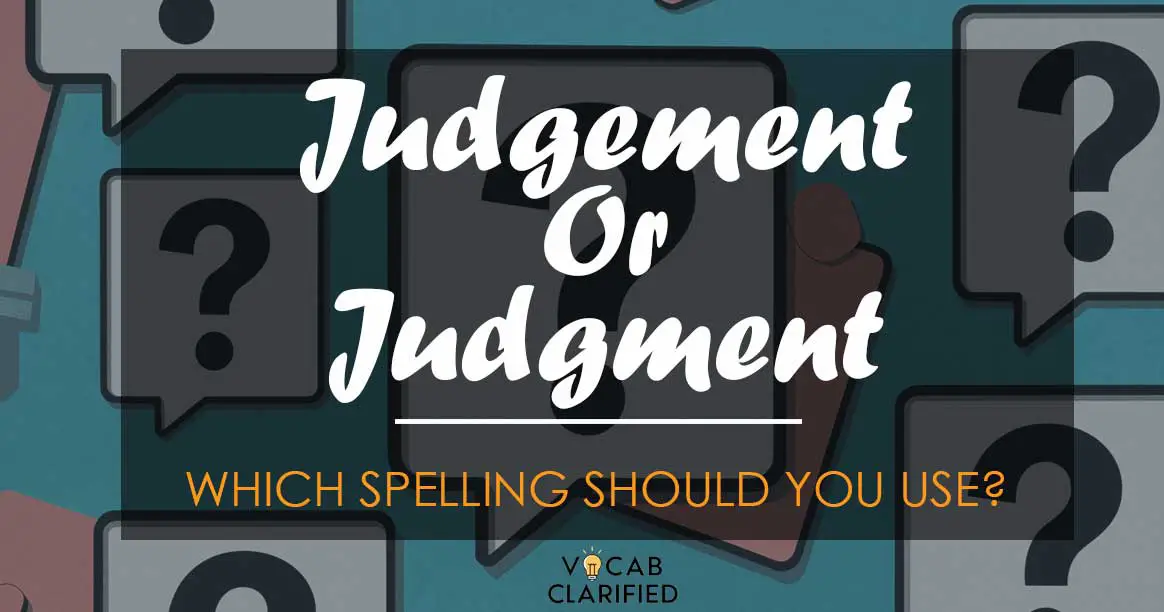The difference between “judgement” and “judgment” might seem subtle, but it’s a common source of confusion. While both spellings are correct, their usage varies depending on where you are in the world.
This guide will explore the distinctions between these two spellings, helping you understand when and where to use each one.
Understanding “Judgement” and “Judgment”
“Judgement”: Definition and Usage
“Judgement” is the preferred spelling in British English, and it means the ability to make considered decisions or come to sensible conclusions.
This spelling is used in all contexts within the UK and countries that follow British English conventions. For example:
- Sentence example: “Her judgement in choosing the right candidate was impeccable.”
- Legal usage example: “The court issued a final judgement after the trial.”
“Judgment”: Definition and Usage
On the other hand, “judgment” is the standard spelling in American English.
Like its British counterpart, it refers to the act of making decisions, particularly legal rulings or personal evaluations. For example:
- Sentence example: “His judgment was clouded by emotions.”
- Legal usage example: “The judge’s judgment was final and binding.”
While “judgment” is the dominant spelling in the United States, it’s also commonly accepted in Canada, where both spellings are recognized but “judgment” is more prevalent.
Side-by-Side Comparison
| Aspect | Judgement (British English) | Judgment (American English) |
| Definition | The ability to make considered decisions | The ability to make considered decisions |
| Common Usage | “Her judgement was praised by her peers.” | “His judgment was quick and decisive.” |
| Key Differences | Standard in British English and related regions | Standard in American English |
When deciding between “judgement” and “judgment,” consider your audience and the regional spelling conventions.
If you are writing for a British audience or following British English standards, “judgement” is the preferred choice.
However, if your writing is aimed at an American audience or aligns with American English, “judgment” is correct.
Everyday Usage Examples
To further illustrate the difference between “judgement” and “judgment,” here are some examples:
- “Judgement” Examples (British English):
- The committee’s judgement was fair and unbiased.
- In her judgement, the proposal needed more work.
- “Judgment” Examples (American English):
- His judgment was called into question after the incident.
- The court’s judgment favored the plaintiff.
Conclusion
While both “judgement” and “judgment” are correct, understanding the regional differences between these spellings is key to using them appropriately.
British English favors “judgement”, while American English uses “judgment.”
By keeping your audience in mind, you can ensure your writing is both accurate and culturally appropriate.

